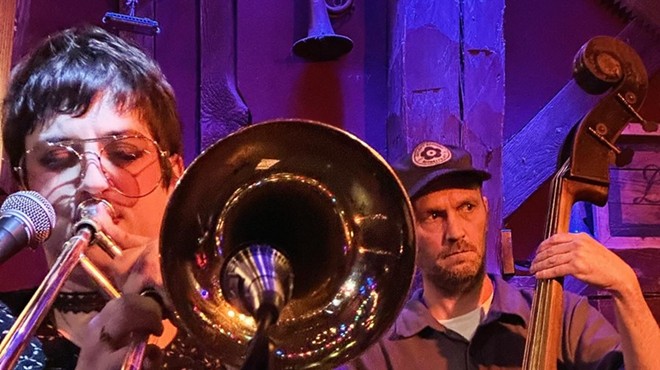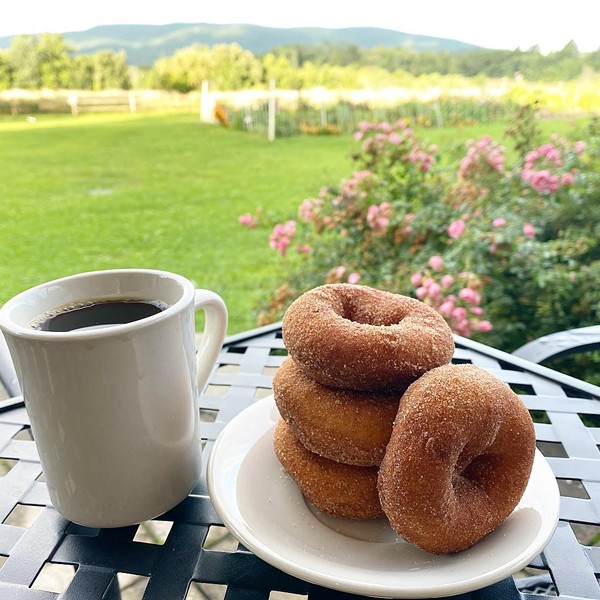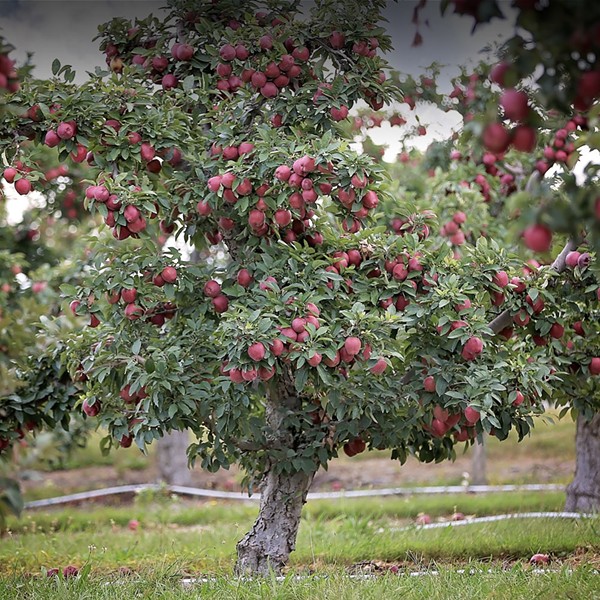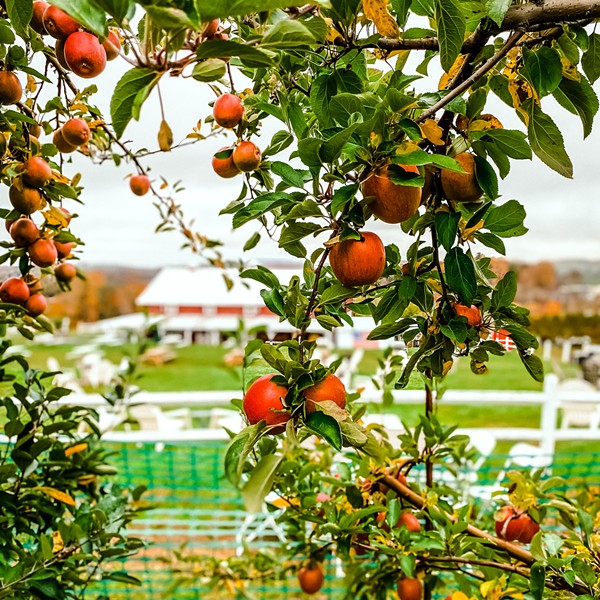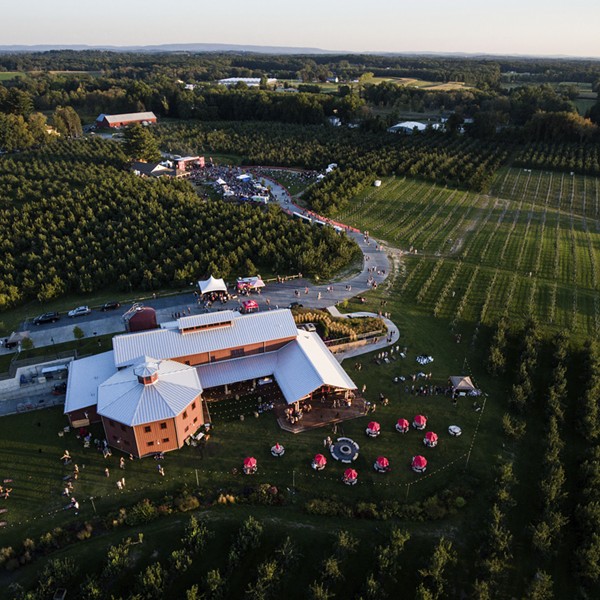Brave New Crops for a Brave New World
Most of the fears around GMOs revolve around what we don't know—not what we do know. But some environmentalists and farmers say we should be looking at the bigger picture. "While there are so many negative things out there about GMOs, it's also important for people to see the positive, too," says Amy Hepworth, who with her two partners owns Hepworth Farms, one of the Hudson Valley's largest organic farms, in Milton. Although Hepworth would never use GMOs herself, as organic farming prohibits them, her thinking on the issue has evolved over the years. "When I first heard of Roundup Ready, I hated the idea of a soybean that wouldn't get hurt if you sprayed herbicides on it. But then I saw that it helped decrease our use of some really toxic chemicals. No one can say it wasn't an environmental win at that time [the mid-1990s]."
Roundup has proved far from perfect, highlighting the risks of GMO agriculture on a number of levels—including the chance that modified plants will infiltrate the natural gene pool. "If you're going to use GMOs, it should be the most contained situation," says Hepworth. "People ask, 'Why use them if you're going to have that risk?' Well, the reason GMOs are here is to help us solve some bigger problems. Drought, malnutrition—there's where GMOs really have a chance to make a difference." Environmentalists like Lynas agree that GMO crops offer an opportunity for us to address the challenges of a changing climate, as well as hunger in various parts of the globe. "There are billions of us on the planet, and limited natural resources," says Hepworth. "We're blessed here in the Northeast with rainfall and spectacular ecological diversity. Other regions don't have that. When people are having malnutrition and starving in Africa, and you ban a GMO rice that has more nutrition in it, it's kind of scary. You could help millions of people. We can sit over here with our abundance and our privileged lives and say that's bad. It's weird. I'm not comfortable with that."
Apple Brown Betty, Without the Brown
Creating GMO foods out of global necessity is one thing. But does the world really need a nonbrowning apple? Some apple growers argue yes. The makers of the Arctic® Apple say their product, which doesn't bruise like other apples, will create less waste, as fewer fruits will need to be discarded. But people like Baden-Mayer don't think the benefits outweigh the risks in this instance. "The technology used in the apple, called RNA interference technology, is used to block the expression of a gene," she says. "So a gene blocker is ending up in our bodies. That's even scarier than the Bt example, because a gene blocker could influence our bodies' normal function." Supporters of the Arctic® Apple, including Lynas, say that the apple's producers are simply switching off an enzyme that causes browning and that the science is harmless; defenders say the fruit is as safe to eat as any produce grown with conventional crop-modification techniques. "You can't conventionally breed a crop to knock out a gene," says Baden-Mayer. "There are effects all up and down the DNA strand. We don't know what else happens to the apple."
We've been modifying our food since the beginning of modern agriculture in pursuit of a crispier apple, a bigger tomato, or a heartier broccoli. But some suggest that tampering with our food endlessly—even through conventional, natural means—is not without potential risk. William David, MD, says in his book Wheat Belly (Rodale, 2011) that modern wheat bears little resemblance to the wheat that our forebears ground into their daily bread—and he directly connects these changes to the rise in allergies, gluten sensitivities, and celiac disease that we have today. GMO foods could have similar effects, though we simply don't know for sure. The only solution is more clinical trials and more testing; just last year, the American Medical Association recommended that the FDA conduct mandatory, premarket safety testing of GMO foods, which we currently do not have.
Waves of Change and Fields of Dreams
GMO skeptics say that we're part of one big human experiment, kind of like juggling with apples. But Hepworth is more optimistic. "I believe in the agricultural community's ability to create good, safe food that is of zero risk to your health, just fresh fruits and vegetables. Give the people what they want—clean food, sustainable practices." For those who want to avoid GMO foods, one surefire solution is to eat exclusively organic. But after working within organic agriculture for 30 years, Hepworth is starting to see its limitations. "My position now is that local is better than organic. I once thought organic was the end all, but it's not the best agricultural practice anymore. There's so much more out there now in biotech. They're producing chemistries that have a very short life and are very effective without toxicity, very specifically targeted." It could be that the next wave of agriculture will move beyond organic, remaining toxin-free while making use of the vast array of technologies and innovations available today. Just what that will look like, and whether or not GMOs will be a part of it, is unclear right now.
Whatever you think of GMOs from a political, environmental, economic, or humanitarian standpoint—and each of these areas is complex—the bottom line from a personal health point of view is that we should steer clear of them. Not because they've been proven unsafe (they have not), but because the foods they're likely to inhabit are processed foods and fast foods, which play a role in modern health scourges from diabetes to heart disease to cancer. The Arctic® Apple could be the beginning of GMOs making their way onto supermarket produce shelves, too, requiring a new kind of consumer savvy. But it will have its competitors, including a new apple that is extremely slow to brown and was developed with conventional breeding techniques, called WA 38 (expect a sexier name when the apple comes to market around 2017). GMO labeling should be mandatory, because we have a right to know what we're eating. But we can also focus our efforts on quelling the fear mongering, and thinking positive. "Can you imagine everybody uniting to have sustainable, healthy soil and clean food? Wouldn't that be fantastic?" asks Hepworth. "We can do that. I have a lot of hope that we're going to come together with a unified agricultural system that's ecologically sustainable and healthy."









